Introduction to Ascension Toubkal
Overview of Mount Toubkal
Mount Toubkal is the tallest mountain in North Africa, soaring to 4,167 meters. This stunning peak is located in Morocco and draws thrill-seekers with its rugged beauty and breathtaking landscapes. The trek to the top isn’t just your typical hike; it’s an experience where you’ll see incredible alpine views and charming Berber villages, along with a variety of plants and animals. Many hikers love sharing the excitement of reaching the summit and how the vast views of the surrounding mountains and valleys leave lasting memories.
Why Climbing Toubkal Matters
Climbing Toubkal is like a rite of passage for nature lovers and hikers. Here’s why so many people cherish this experience:
- A Real Challenge: It’s a mix of adventure and beauty that tests your endurance and gives you a satisfying sense of accomplishment.
- Cultural Experience: You’ll get to meet warm and friendly Berber folks who are eager to share their traditions and stories.
- Breathtaking Views: The scenery from the top is just amazing, making every step of the trek totally worthwhile.
Many adventurers say that standing on Toubkal ignites a deep appreciation for nature and perseverance, creating memories that last long after the journey wraps up.
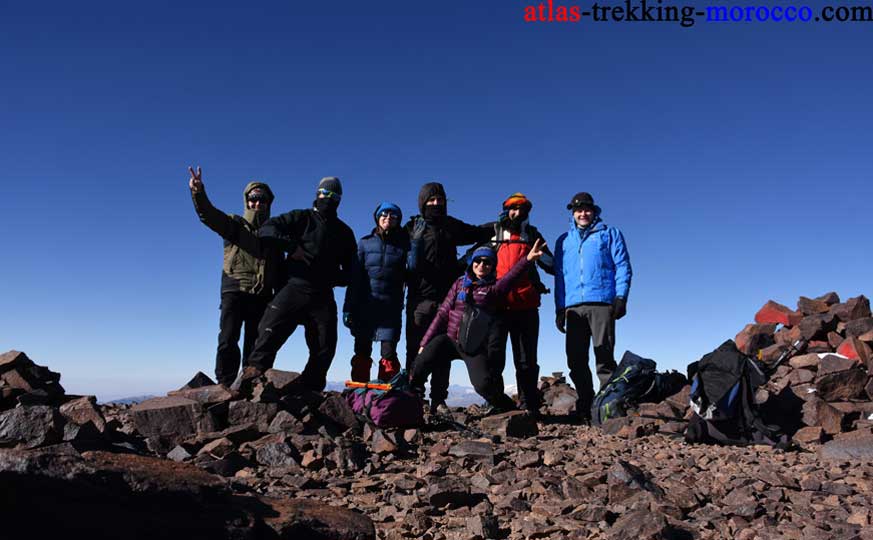
Planning Your Toubkal Trek
Best Time to Climb Toubkal
Timing is key when planning your Toubkal hike! The best seasons are in spring from April to June and in fall from September to October, when the weather tends to be pleasant and the skies clear, perfect for taking in those panoramic views. I climbed in early May, and the blooming flowers made the scenery even more stunning!
- Spring (April to June): Mild weather and blooming flowers.
- Fall (September to October): Great conditions for trekking with fewer people around.
Try to steer clear of winter if you’re not ready for snow and icy conditions unless you want an extra challenge!
Must-Have Gear and Equipment
Before you hit the trails, make sure you’ve got the right gear to keep your trek safe and fun. Here’s a list I found helpful:
- Hiking Boots: Solid waterproof boots are must-haves for navigating rocky paths.
- Layered Clothing: Dress in layers because temperatures can change a lot, especially as you go higher.
- Hydration System: A good water bottle or pack will keep you hydrated on the journey.
- Trekking Poles: They help with stability and can save your joints, especially on steep sections.
Don’t forget a first-aid kit and some sunscreen—you’ll be glad you did! Being prepared with the right equipment can make your Toubkal adventure unforgettable.
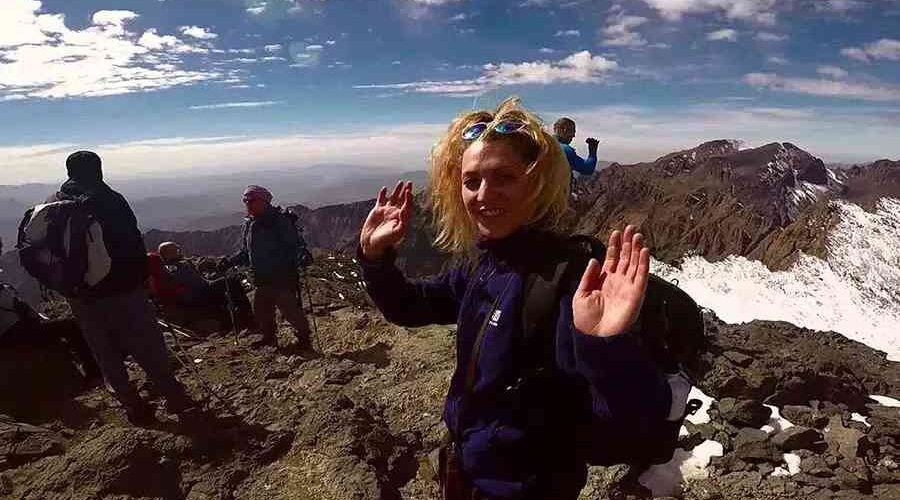
Source: www.marrakech-desert-trips.com
Routes to the Summit
Toubkal Circuit Route
If you want an adventure filled with incredible scenery and a chance to connect with the area, the Toubkal Circuit Route is the way to go. This multi-day trek around the Toubkal massif lets you explore hidden valleys and quaint Berber villages. On my trip, I loved stopping at local cafes for some traditional mint tea.
- Duration: 3-4 days
- Difficulty: Moderate to challenging
- Highlights:
- Amazing views of Toubkal from different spots
- Cultural encounters with the Berber community
Trekking via Imlil
Trekking through Imlil is probably the most popular route and a great way to start your adventure on Toubkal. This lovely Berber village is easily reached from Marrakech and the path takes you through lush valleys and terraced farms.
- Duration: 2 days (with an optional overnight in a mountain hut)
- Difficulty: Moderate
- Highlights:
- Great place to acclimatize gradually
- Iconic views of Toubkal as you get closer
Whether you go for the Circuit Route or the Imlil trail, both paths promise unforgettable moments as you get closer to the magnificent summit of Toubkal!

Source: www.story-rabat.com
Acclimatization and Altitude Sickness
Why Acclimatization Matters
Getting used to the altitude is super important for fully enjoying your Toubkal trek. Spending some extra time at lower altitudes before climbing helps your body adjust to less oxygen. When I was going up, I took a day to check out Imlil and the valleys nearby, and it really helped boost my energy levels on summit day.
- Ways to Acclimatize:
- Go slow—take your time!
- Drink lots of water to stay hydrated.
- Think about taking a rest day at higher camps before you push for the summit.
Spotting Altitude Sickness Symptoms
Being aware of the signs of altitude sickness is super important. You need to listen to your body while trekking. Common signs include:
- Headaches
- Nausea or vomiting
- Dizziness and tiredness
- Shortness of breath
On my trek, I met another climber who felt dizzy. Thankfully, we were able to go down a bit to help with his symptoms. If you or anyone in your group starts feeling unwell, don’t hesitate to take a break or ascend to a lower level. Your health should be a priority to ensure you have a safe and fun Toubkal adventure!
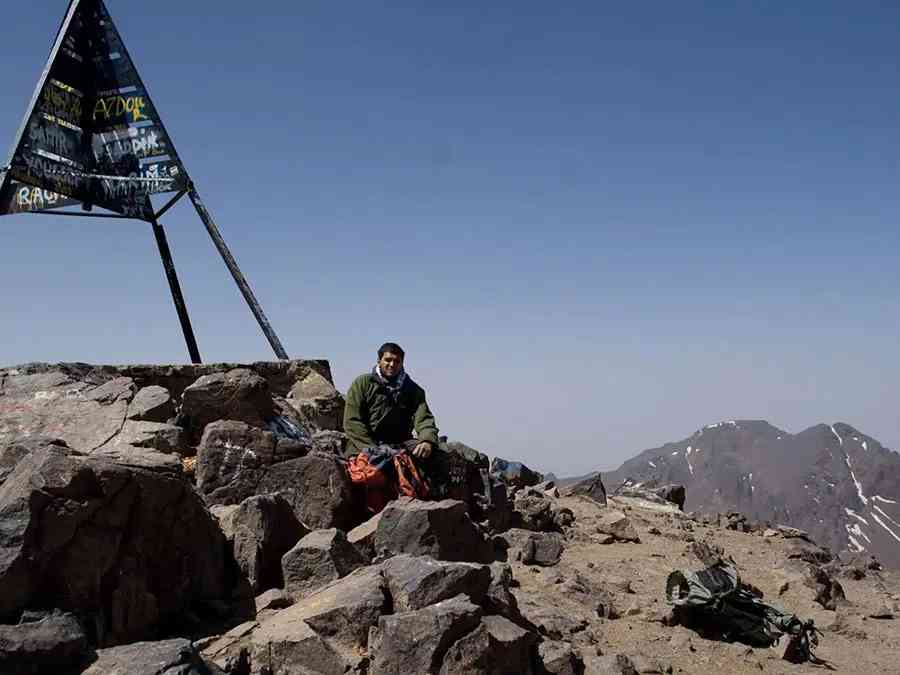
Source: www.marrakech-desert-trips.com
Accommodations and Stays
Mountain Huts on Toubkal
When you’re trekking Toubkal, staying in mountain huts gives you a cozy spot to rest after a long hike. The Toubkal Refuge is the most popular and is only a short hike from the summit. It’s a great place to meet fellow trekkers and share stories over a hearty meal. I remember enjoying a tasty tagine while swapping tips with new friends at the hut.
- Amenities:
- Dorm-style beds
- Basic food options
- Common areas to relax
Make sure to book ahead, especially during busy times, as these huts fill up quickly!
Camping Options near Toubkal
For those wanting a little extra adventure, camping near Toubkal gives you a unique experience, especially under the stars! There are designated camping spots around Imlil and the Toubkal area that let you soak in the beauty of nature.
- Things to Consider:
- Proximity to water sources: Make sure you’re near streams for water.
- Weather conditions: Be ready for chilly nights.
- Permits: Check if you need permission to camp in certain spots.
Bringing a lightweight tent and sleeping gear lets you enjoy breathtaking sunrises and sunsets. Whether you like the easy comfort of huts or the thrill of camping, both options offer unforgettable nights in the mountains!
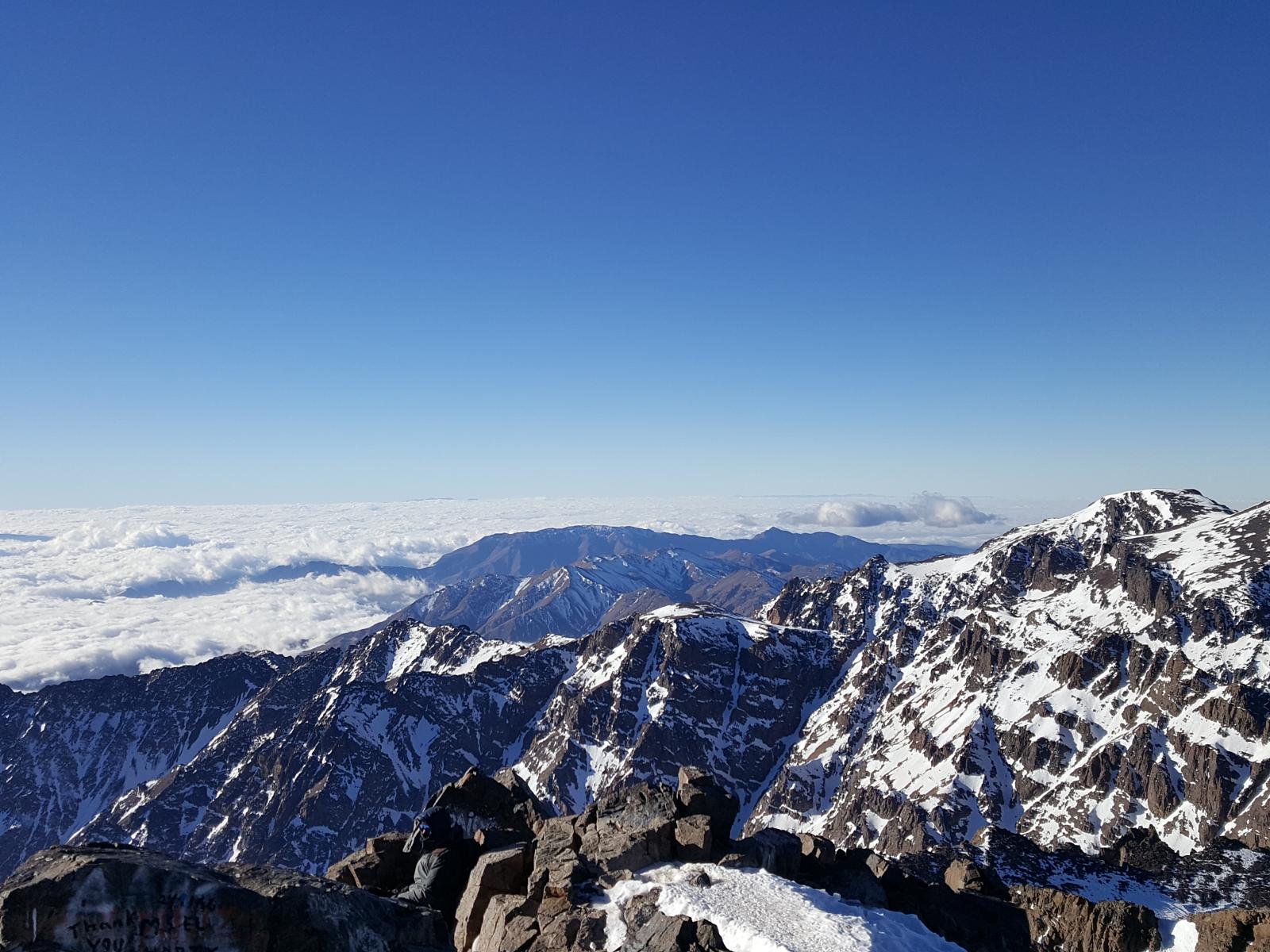
Source: explore-agadirsoussmassa.com
Flora and Fauna of Toubkal National Park
Plant Species Diversity
Toubkal National Park is a stunning showcase of plant life. From lush forests to alpine meadows, the different elevations create amazing ecosystems. I was really taken by the bright wildflowers, especially the colorful edelweiss that made the hike feel magical.
- Notable Plants:
- Edelweiss: A symbol of mountain beauty.
- Thyme and Oregano: Fragrant herbs that thrive in the region.
- Juniper Trees: Tough trees that grow in rocky areas.
The incredible variety of plants shows how nature adapts to such a dramatic landscape!
Wildlife Encounters in the Area
Keep your eyes open for the unique wildlife as you hike through Toubkal National Park. The area has a variety of animals that thrive in its diverse environments. I was beyond excited to spot an agile ibex munching on grass on a rocky ledge.
- Common Wildlife:
- Barbary Macaque: Playful primates often seen in the trees.
- Atlas Mountain Gazelle: Rare and beautiful, these gazelles can be shy yet captivating.
- Bird Species: Look out for colorful choughs and majestic golden eagles soaring overhead.
Experiencing the local plants and animals adds another magical layer to your adventure, turning your trek into a true exploration of nature’s wonders!
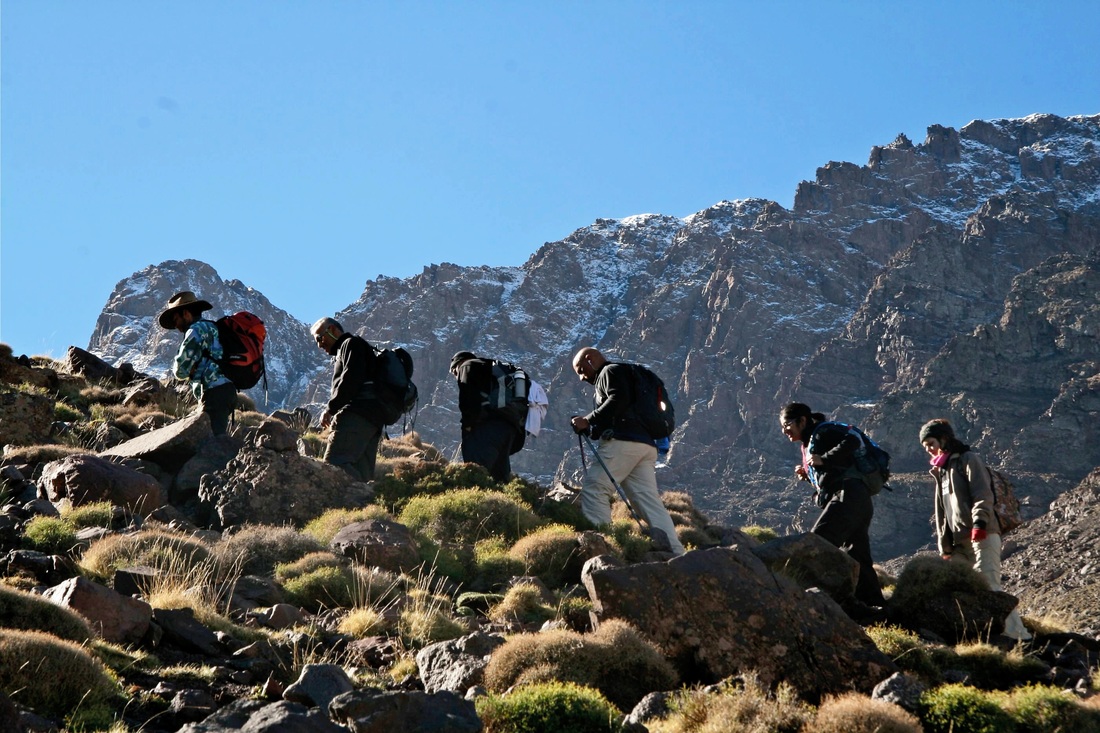
Source: www.imlil-trekking.com
Cultural Insights of The Atlas Mountains
Berber Tribes in the Region
The Atlas Mountains have a rich cultural history primarily shaped by the Berber tribes who call this stunning region home. Known for their hospitality, these indigenous peoples have unique traditions that greatly enhance your trekking experience. While I was in a Berber village, I had a wonderful time sharing a meal with a local family, showcasing their warm welcome.
- Key Aspects of Berber Culture:
- Language: Tamazight is commonly spoken.
- Craftsmanship: Traditional weaving of carpets and pottery showcases their artistic skills.
- Hospitality: Warm greetings and sharing meals are key parts of their culture.
Traditional Practices and Festivals
The vibrant culture of the Berber people shines through in their customs and festivals. Many local events celebrate the agricultural cycles, showing their strong connection to the land. I was lucky enough to see a harvest festival where lively singing and dancing brought everyone together.
- Notable Festivals:
- Yennayer: Celebrating the Berber New Year in January.
- The Festival of Roses: Mid-May celebration in the Valley of Roses with music, crafts, and local produce.
Connecting with the Berber tribes really makes your Toubkal adventure richer; their traditions reflect resilience and harmony with nature, leaving you with amazing memories from your trek through the Atlas Mountains!
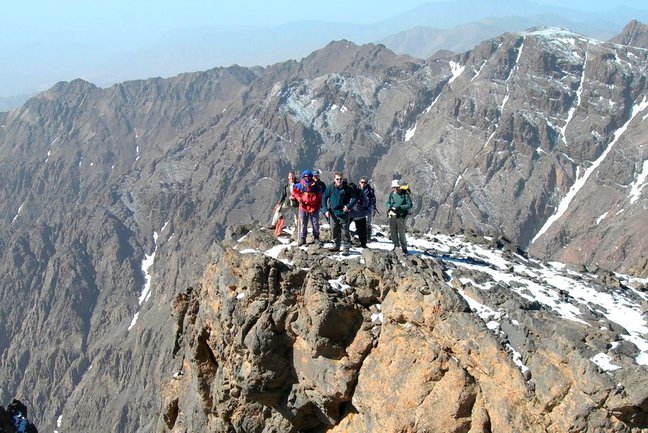
Source: d3rrfy0o57uet0.cloudfront.net
Safety Considerations and Tips
Emergency Contacts and Help
Staying safe while trekking Toubkal is super important. Having a plan and knowing key emergency contacts is a must. I remember when I got a bit lost on a less-used trail, and having my guide’s number saved me. The nearest police station in Imlil can help in emergencies.
- Important Contacts:
- Local Guides: Keep their numbers nearby for quick help.
- Emergency Services: Save local emergency contacts on your phone.
- Mountain Rescue Services: Know how to reach them.
Avalanche Precautions
Avalanche risks can crop up during certain times of the year, especially in winter and early spring. Knowing how to spot dangerous conditions is really helpful. On my hike, I learned to always check the weather before setting out.
- Avalanche Precautions:
- Stay Informed: Look at avalanche forecasts before you go out.
- Stick to Established Trails: These paths are usually safer and in better shape.
- Travel in Groups: Hiking with others is safer in case of emergencies.
By keeping these safety tips in mind, you’ll have a way more enjoyable Toubkal experience without worries, ensuring you have a secure adventure in the Atlas Mountains!
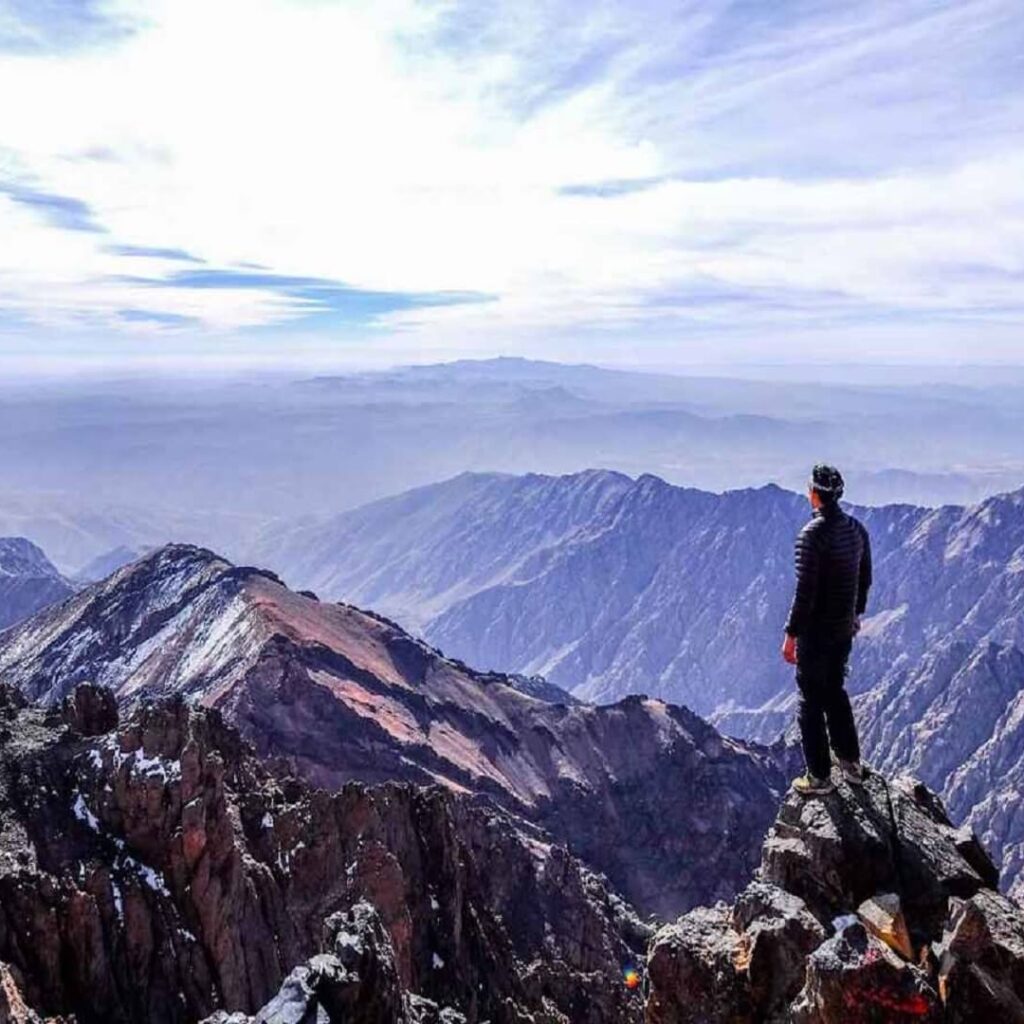
Source: www.climbingtoubkal.com
Toubkal Summit Experience
Panoramic Views from the Top
Getting to the top of Toubkal is totally a one-of-a-kind experience! Standing there and seeing the breathtaking views of snow-covered peaks and vast valleys made me feel like I could see it all. Every direction showed something beautiful.
- What to Watch for:
- Dazzling Sunrises and Sunsets: Timing your climb just right can give you amazing lighting.
- Surrounding Peaks: Notable mountains like Ouanoukrim make the sight even better.
These views alone made the tough trek so worth it, filling me with awe.
Sense of Achievement and Pride
The thrill of standing at 4,167 meters on Africa’s highest peak filled me with such a sense of fulfillment. That moment, surrounded by fellow climbers who were just as proud, created connections that I will treasure forever.
- Reflections on Achievement:
- Personal Growth: Facing challenges truly pushes your limits.
- Community Spirit: Sharing this success with friends or fellow trekkers boosts the joy.
The Toubkal summit experience sparked a whole new love for hiking in me, making all the aches and challenges along the way completely worth it! It’s an unforgettable moment that will always have a special place in my heart.
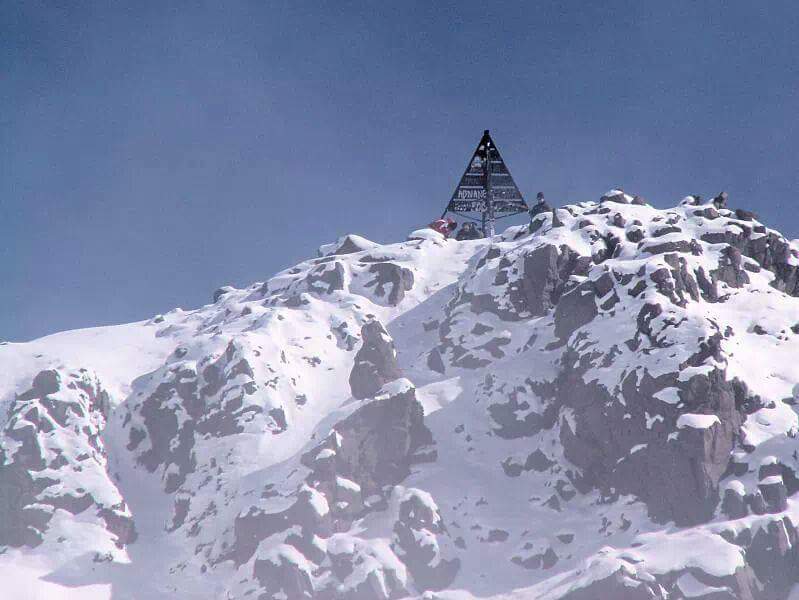
Source: www.adraraventure.ma
Impact of Tourism on Toubkal
Sustainable Tourism Initiatives
The growing popularity of Toubkal has led to various sustainability initiatives to help protect its stunning beauty. While trekking, I saw lots of eco-friendly practices like waste management programs and local guides encouraging responsible behavior on the trails.
- Key Initiatives:
- Eco-Treks: Guided tours focusing on low-impact hiking.
- Community Involvement: Local families running guesthouses offer real experiences and help with the community’s economy.
These efforts are super important for keeping a balance between tourism and conserving nature.
Challenges of Overtourism
However, with more visitors comes the challenge of overtourism, which can put pressure on the natural environment and local communities. While the lively atmosphere on the trails is fun, I noticed wear and tear, with litter and overcrowding becoming more of an issue.
- Consequences of Overtourism:
- Erosion: Heavy foot traffic can harm trails and landscapes.
- Cultural Impact: Traditional ways of life may get overshadowed by more tourists.
It’s essential for us travelers to practice sustainable behavior and advocate for keeping Toubkal’s beauty intact for those who come after us. As we set off on our adventures, let’s do our best to leave this breathtaking region even better than we found it!
Activities In Marrakech
Day Trips From Marrakech
Desert Tours From Marrakech
FAQs
1. What is the ascension Toubkal?
The ascension Toubkal means climbing Mount Toubkal which is the tallest peak in North Africa at 4,167 meters or 13,671 feet. It’s situated in the Atlas Mountains of Morocco and is a go-to spot for hikers and climbers looking for a good challenge and some amazing views.
2. When is the best time to embark on the ascension Toubkal?
The best times to climb Toubkal are in the spring from March to May and in the fall from September to November. These months bring pleasant temperatures and stable weather which helps keep your climb safe and enjoyable. Summer can be hot but it’s doable while winter climbs need some advanced skills due to snow and ice.
3. How long does the ascension Toubkal typically take?
Most climbs require around two to three days. On the first day, you hike from Imlil to the refuge at around 3,207 meters. The second day is when you tackle the summit and head back down to the refuge or base depending on your plan. Some folks like to stay longer to get used to the altitude and check out the nearby areas.
4. What equipment is necessary for the ascension Toubkal?
For the climb, you’ll need good sturdy hiking boots and clothes that can handle changing weather. A waterproof jacket, gloves, a hat, and some sunglasses are also a must. Don’t forget your trekking poles, a daypack, a sleeping bag, a flashlight, and personal items like a first aid kit and snacks. If you’re climbing in colder times, you might also need crampons and an ice axe.
5. Do I need a guide for the ascension Toubkal?
You can climb Toubkal on your own if you want but it’s a smart idea to hire a local guide, especially if it’s your first time. Guides know the area well, help keep you safe, and can share the culture with you while taking care of the boring stuff like planning your route and finding a place to stay.
6. What are the accommodation options during the ascension Toubkal?
You’ve got a few choices for staying overnight like mountain refuges and guesthouses in towns like Imlil and Aremd. The Toubkal Refuge, close to the top, provides dorm-style lodging and food for climbers. In Imlil, there are plenty of low-cost lodges and hotels for a comfortable stay before and after your climb. Make sure to book ahead especially during busy seasons.
7. How should I prepare physically for the ascension Toubkal?
Getting ready for the climb means improving your cardio, building strength in your legs, and boosting your overall stamina through regular hikes, treks, and aerobic workouts. Doing practice hikes with a loaded backpack helps, and getting used to higher altitudes is super important to avoid altitude sickness.
8. What safety measures are important for the ascension Toubkal?
For safety, it’s key to acclimatize well to the height, drink plenty of water, stick to marked trails, and keep an eye on the weather. It’s smart to climb with someone who knows what they’re doing, bring the right safety gear, and know the signs of altitude sickness. Let someone know your plan and when to expect you back too.
9. Are there any permits or fees required for the ascension Toubkal?
Yes, you need to get a National Park permit to enter Toubkal National Park, the area around Mount Toubkal. Plus there might be extra fees if you hire a guide or porter. It’s a good idea to sort out your permits and other paperwork ahead of time with reliable trekking companies or local tour groups.
10. What cultural experiences can I expect during the ascension Toubkal?
Climbing Toubkal isn’t just about the views; you’ll get a taste of the rich Berber culture in the Atlas Mountains. While trekking, you’ll pass through traditional Berber villages, meet local families, and enjoy their hospitality. Plus, you’ll get to sample local food, learn about Berber customs, and visit cultural sites which really enrich the climbing experience.

